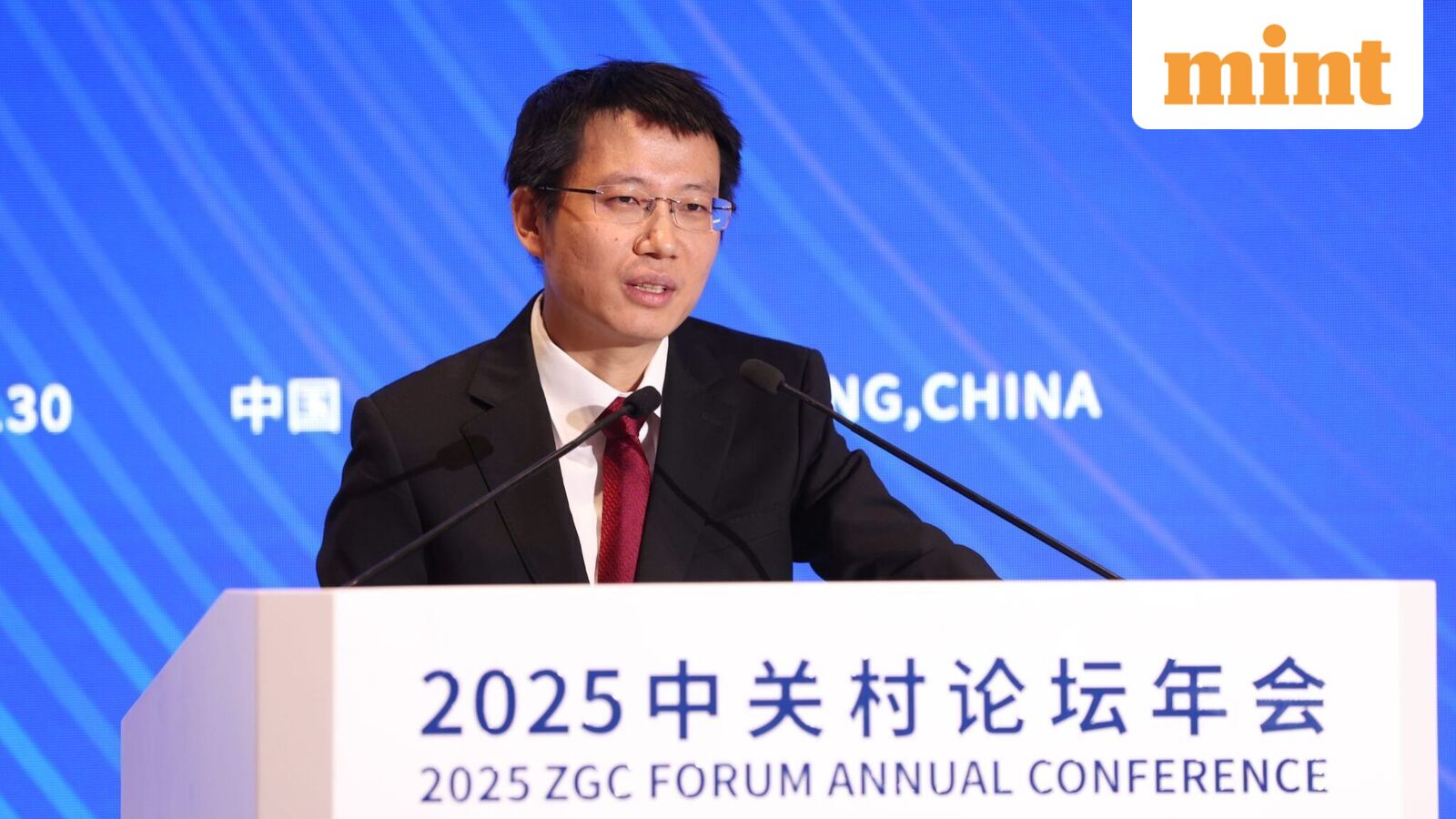Chen Tianshi, co-founder of Cambricon Technologies, was nowhere near being among the wealthiest people on Earth in 2019. His AI chip manufacturing company’s largest customer, Huawei Technologies Co., had suddenly stopped nearly all business to build its own semiconductors. Till then, Huawei had accounted for over 95% of the company’s revenue.
Following a sudden decline in a major source of revenue, Tianshi found a way to boost business due to the US decision to cut off China’s access to cutting-edge chips and Beijing’s aim to boost domestic technology, according to a report by Bloomberg News.
This eventually provided government backing and a protected market for the AI chip manufacturer, which enabled him to become one of the world’s wealthiest self-made billionaires.
Cambricon Technologies share price
Over the past 24 months, shares of Cambricon Technologies have surged by more than 765%. His wealth, mainly coming from his 28% stake in the Beijing-based AI accelerator manufacturer, has more than doubled to $22.5 billion since the beginning of this year, according to the Bloomberg Billionaires Index.
Chen’s growth highlights China’s support for its domestic AI industry, creating a new set of state-aligned tech elites shortly after it clamped down on its private-sector giants
As Washington’s export restrictions limit China’s access to advanced chips, companies like Chen’s Cambricon have become national leaders, supported by government policies and investor enthusiasm. They represent a new industrial landscape where political backing, rather than market competition, determines success.
Also Read | New nuclear arms race pits US against both Russia and ChinaConcerns over Cambricon’s growth
However, questions arose on whether Cambricon’s surge is due to government protectionism or the competitiveness of its chips, leading to uncertainty about how long this growth will continue.
“Cambricon’s explosive revenue growth is mainly due to a low starting point, and its current valuation may be inflated without sustained policy support,” Shen Meng, director at Beijing-based investment bank Chanson & Co, told Bloomberg News.
Even though Chen has not yet reached Nvidia founder Jensen Huang’s net worth, he is already the third richest person under 40 worldwide, following Lukas Walton and Mark Mateschitz, heirs to Walmart and Red Bull, respectively, according to the index.
Also Read | South Korean shares fall over 2% as chipmakers drop; won jumps
Cambricon shares and Chen’s net worth soared in August after China asked domestic companies to avoid using market leader Nvidia Corp.’s H20 processors, especially for government-related purposes.
During the same time, the company intervened to calm the investor frenzy surrounding its shares, warning in a filing with the Shanghai stock exchange that it remains under US sanctions and highlighting the challenges of climbing the technology ladder. It also clarified rumours about non-existent products in the pipeline.
“It’s too early to say if Cambricon or Huawei, the leading AI chip designer in China, will become China’s Nvidia, as Nvidia’s full stack including the CUDA ecosystem is extraordinarily hard to replicate quickly,” Sunny Cheung, a researcher at Washington-based think tank Jamestown Foundation told the news portal.
Even though questions have been raised over Cambricon’s valuation, Chen’s journey to success has become a notable example of China’s state-backed academic pipeline, which also contributed to the unexpected breakthrough of AI startup DeepSeek and its young founder, Liang Wenfeng.
Cambricon was listed on the Shanghai Sci-Tech Innovation Board in 2020, but it remained in the red until it started reporting quarterly profits for the first time since its IPO in the three months ending December 2024.
In 2022, it faced a setback when the US Department of Commerce placed Cambricon on the entity list due to its attempts to “acquire US-origin items in support of China’s military modernization,” which restricted the company’s access to advanced Western technologies.
However, the US restrictions had a limited impact on Cambricon’s outlook. When Washington expanded the export controls to prevent Nvidia and AMD from selling any high-performance AI chips to China, it created a supply gap. Beijing responded strongly, requiring domestic tech firms to “buy local,” meaning Chinese companies now must source at least some of their chips from domestic manufacturers like Huawei or Cambricon.
With the rising demand, Cambricon’s revenue soared more than 500% over the past 12 months, despite facing competition from Huawei and a slew of other domestic startups.
“Their rise is directly caused by the urgent need for countries to have access to hardware infrastructure,” Shuman Ghosemajumder, co-founder and CEO of Reken, a San Francisco-based AI startup told Bloomberg. “Similar to Nvidia, I think they will likely encounter a lot of variance in their stock price as people decide exactly how much infrastructure is required for practically useful generative AI models, and how much those expectations have been overhyped,” Ghosemajumder said.
(With inputs from agencies.)

